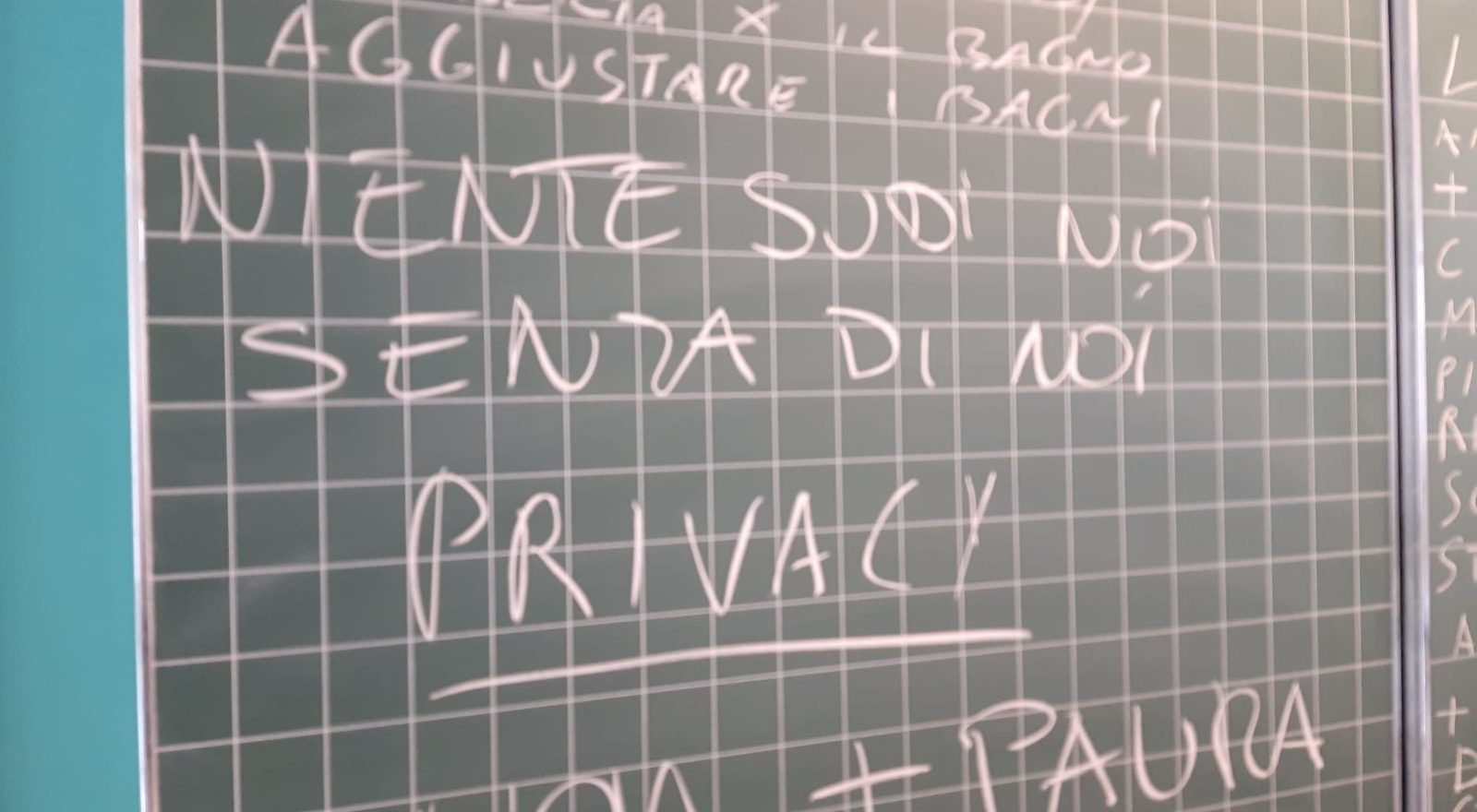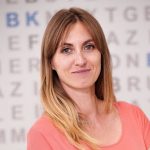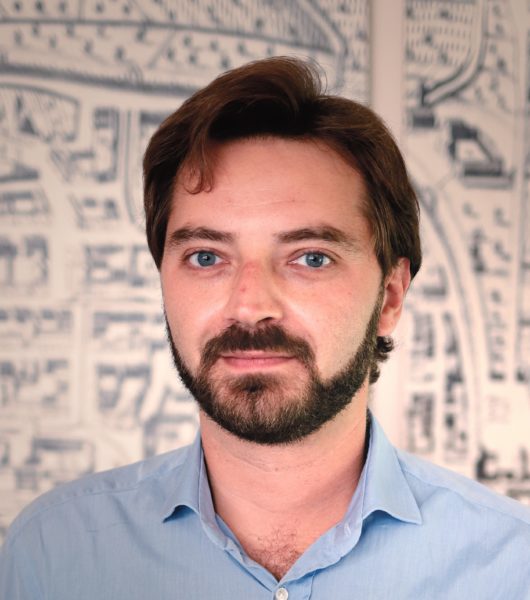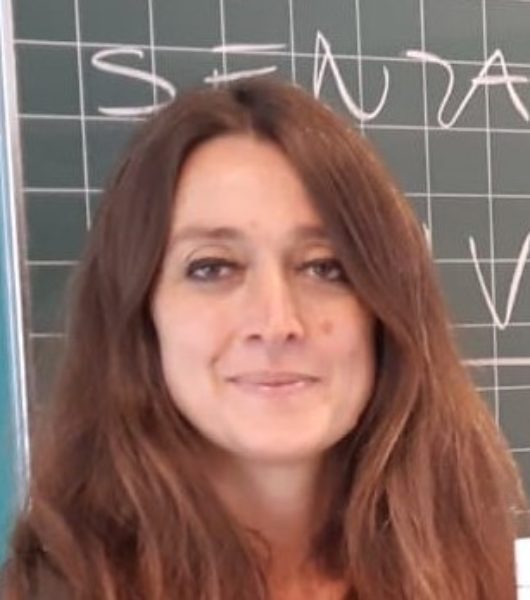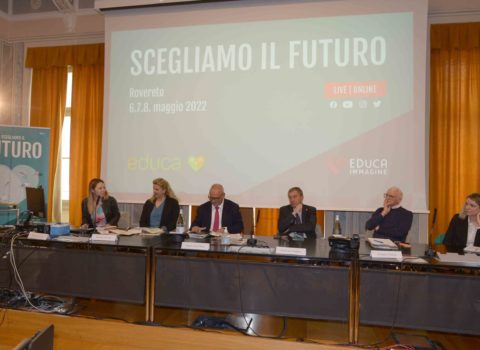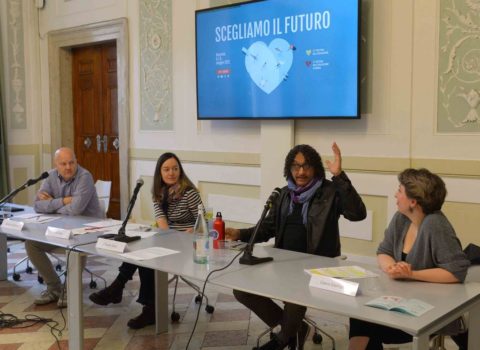
One school, many schools
The school model we have experienced is not the only one possible. A journey into the school universe with the historians Enrico Valseriati and Vanessa Roghi.
Within the framework of the 2022 EDUCA festival, which finally returned in person, a dynamic and stimulating meeting took place in which the protagonists were the students of the middle school of Rovereto, who spoke freely of their idea of school with the FBK-ISIG historian Enrico Valseriati and the historian and independent researcher Vanessa Roghi. Starting from the book of the same Roghi, Voi siete il fuoco. Storia e storie della scuola (Einaudi ragazzi, 2021), the students questioned themselves about their school model, about what they would like to be different, about its advantages and the inherent problems. The volume is in fact an attempt to tell the history of the school to students, who usually are not aware as to why things are as they are and why they study within a given educational system, as this was defined and by whom.
The contemporary Italian school is essentially of a transmissive-notionist type, that is, students learn more through theory than practice, starting from textbooks. Because of Covid-19 and the need for isolation and distancing, many practical laboratories have been cancelled or significantly decreased in number, with the result that students now spend most of the school hours sitting at their desk listening to their teachers. In the past, however, there were apparently many more hands-on laboratories; as the author testified, and in one of them she and her companions had sewn a large blanket made of many squares that has become for her a real source; a source that recounts the type of school model that led to its own creation, which preserves in the texture of the fabrics the gestures, the touch, the voices, the memories of those children who so fondly worked on it.
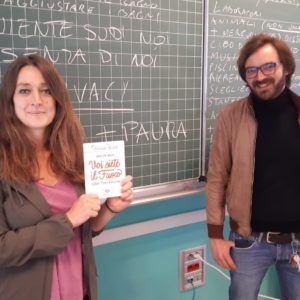 The children participating in the meeting were also asked to bring a source, a symbolic object that represents their school: many of them brought photographs, which told how they dressed at the time, whether or not there were school uniforms, if in the classroom they could wear slippers – and therefore sit comfortably on the floor – the relationship with other classmates. The classmates themselves are a source that has a lot to say about our school experience, about who we were within that educational model, how we got into it and how, finally, we got out of it and what it left us. Another photograph taken portrayed a frightened girl on her first day of school, which recalled that a feeling closely connected with the idea of school is precisely fear, or anxiety, which often turns into real performance anxiety when linked to an evaluation mark. The two historians focused on this aspect of the school system, starting from the source brought by another student, a grammar test in which she had been assigned a nice mark: but a mark is, in itself, nothing but a number, which is rarely considered and shaped on individual people and is applied indistinctly to everyone, regardless of their own individuality. Marks also risk reducing those to whom they are assigned to a number, which can even be a zero in the worst scenario. This generates anxiety, shame and sometimes lack of self-esteem, while the marks expressed with “good, excellent, etc.”, while remaining judgmental, are less emotionally and psychologically impactful in those who receive them.
The children participating in the meeting were also asked to bring a source, a symbolic object that represents their school: many of them brought photographs, which told how they dressed at the time, whether or not there were school uniforms, if in the classroom they could wear slippers – and therefore sit comfortably on the floor – the relationship with other classmates. The classmates themselves are a source that has a lot to say about our school experience, about who we were within that educational model, how we got into it and how, finally, we got out of it and what it left us. Another photograph taken portrayed a frightened girl on her first day of school, which recalled that a feeling closely connected with the idea of school is precisely fear, or anxiety, which often turns into real performance anxiety when linked to an evaluation mark. The two historians focused on this aspect of the school system, starting from the source brought by another student, a grammar test in which she had been assigned a nice mark: but a mark is, in itself, nothing but a number, which is rarely considered and shaped on individual people and is applied indistinctly to everyone, regardless of their own individuality. Marks also risk reducing those to whom they are assigned to a number, which can even be a zero in the worst scenario. This generates anxiety, shame and sometimes lack of self-esteem, while the marks expressed with “good, excellent, etc.”, while remaining judgmental, are less emotionally and psychologically impactful in those who receive them.
The pedagogue Federico Batini carried on a specific research on early school leaving and wanted to speak directly with students, according to the motto “Nothing about us without us”: the interviewees said they were tormented by marks, which became the essential part of their school, while they needed to receive more reassurance, be evaluated for other things, learn useful skills such as learning to follow the news and be able to understand it, regardless of whether they did well or not in Mathematics or Italian.
Neuroscience, which studies the way in which we learn things, has also scientifically established that there are various types of intelligence, very different from one another, which all need training. Learning itself is a sort of training, which is natural and spontaneous at certain stages of our life whereas in others it becomes forced and artificial.
Early school leaving, therefore, is a direct consequence of feeling ZERO, a number. But are there different ways to evaluate people and make them feel or not part of the educational community to which they belong? Can the same students be promoters and protagonists of a different school model, shaped according to their evolving needs, in which, for example, a struggling classmate is helped by others in the class without having to pay expensive private lessons that not everyone can afford? Simply put, can we change together?
These and other questions were left to the students of Rovereto, with the aim of making them feel not only active protagonists of the meeting, with the right to speak and think, but of the school model within which they grow together every day.
